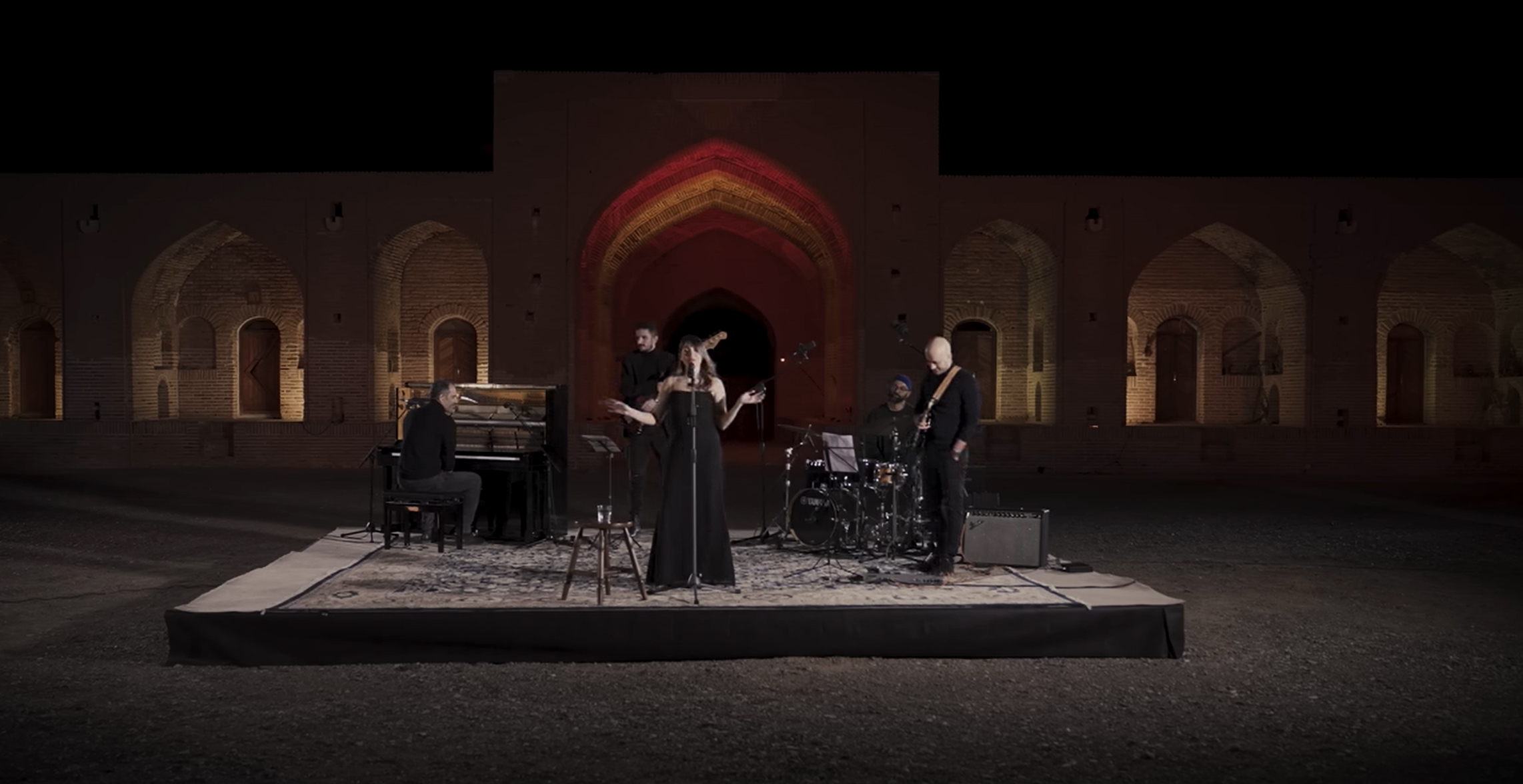A week ago today, Iranians took to the streets once again, unafraid of arrest, tear gas, batons, and bullets. Their online counterparts work in tandem, airing minute to minute observations as they receive them, and 20 February was no exception. At about 4pm London time, footage starts coming through — that’s the way it’s been since the people’s protests began in June 2009 — as they return home to upload and send what they’ve managed to film. Only this time, at exactly the expected hour, the websites of the most valued sources of information were hacked. Iran’s Revolutionary Guard Corps (IRGC) battled on, using the most effective method of preventing the outside world from gaining any glimpse of what occurred.
I witnessed this live on www.astreetjournalist.com.
The accompanying song and its message could send a chill down your spine, or you could chuckle at the ironically American choice of the Michael Jacksonesque voice singing resolutions in a style more evocative of pre-superbowl renditions of the Star Spangled Banner.
That Street Journalist was targeted is no surprise. The site is an all round source of reliable news from Iran in English and was the first to provide live blogging at Ashura in 2009, when it received some 15 million hits.
I spoke to Street Journalist’s Editor-in-Chief, Saeed Valadbaygi:
“There have been various attacks against the site over the last 12 months. But their stance has changed; now, even if it says it’s the work of a Saudi group, it’s the Cyber Army. Iran’s Cyber Army attacked VOA [Voice of America satellite channel] on Sunday but they diffuse their efforts, seeming not to recognise us with the same standing, to not give Street Journalist the kudos. But there was a wave of attacks against Iranian media on that same day.
This is a very real element of our work. As well as bringing the site down, four members of our team received emails, with the following threat:
‘We have hacked you. This is your first warning. If you continue there may be a hefty price — physically and socially — we will stop you.’
At Street Journalist the work we do has no financial backing, and is not affiliated to any political group. It’s the work of a few dedicated people and the editor of the day, providing news, a mirror of events in Iran. It is linked to social movements as a reference point of activity — the women’s movement, children’s movement, workers’ movement.
The two words “Street” and “Journalist” denote journalism that reflects the voice of the street and suffers the baton along with the people. We’re not Green but we care about justice and rights. Oppression is taking place and we must report it. We’re not for Islam or the Islamic Republic, in the same way that we’re not Christian or Jewish. Our focus is on representing the people. The way I see it, people’s personal beliefs have been shattered. What’s happening has had a huge impact on people’s characters.
The government has not politicised Islam. Islam has been politicised from the start. Every religion has been deeply embroiled in politics, but in Iran the clerics are in charge of the nation’s wealth. They want to take social power, even within Islam from the Sunnis, who are persecuted and prohibited from practising their faith. People don’t feel that they can express themselves outside of this enforced religion. We are fighting for freedom of expression. One opinion is that no-one should practise any other belief. We would take the same approach in response to such dogma were it any another religion. Nonetheless, as a secular organisation we have issues with the Islamic aspect in that it affects women in a fundamental way. The future of religion in the age of technology is directly connected to hearing the true voice of mankind. We can cause an eruption, but this doesn’t answer what religions have done to people, turning them into slaves; contravening the very tenets they uphold.
Despite all that I’ve said, I think our readership is aware of our fight against dictatorship. This has not been a religious attack against non-religious people, but a direct assault by the government on its people. Our concern is political freedom — of expression and of assembly, all the things recognised as personal rights in the West. We want an Iranian version of this.
We will continue our work but with no budget we are limited. Our strength is the capability of our team. We need support from partnerships and the financial support of larger media to cover our weaknesses. Things are different now. It’s not difficult to get the site back up, but we need to investigate how the government are operating and take more precautions for our personal security. We recognise that they’re not joking.”




